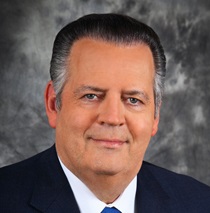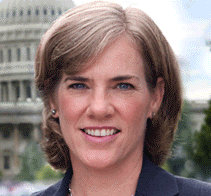By Bob Allen
The Southern Baptist Convention’s top spokesman for moral concerns charged the Obama administration with “religious persecution” for requiring religious employers to cover preventive health-care services including FDA-approved contraceptives.
The Patient Protection and Affordable Care Act, also known as Obamacare, requires that employee health-care plans cover, without co-payment, “preventive services” including birth-control methods approved by the Food and Drug Administration.
Certain religious organizations, including churches, are allowed to opt out of the contraceptive mandate as a matter of conscience, but not for-profit businesses like Hobby Lobby, whose Baptist owners filed one of more than 50 lawsuits brought against the U.S. Department of Health and Human Services based on religious or moral objections.
 In an April 8 letter to HHS, SBC Ethics and Religious Liberty Commission President Richard Land called for extending the opt-out privilege “to all individuals, small businesses and corporations that wish to direct their economic activities according to the dictates of their consciences.”
In an April 8 letter to HHS, SBC Ethics and Religious Liberty Commission President Richard Land called for extending the opt-out privilege “to all individuals, small businesses and corporations that wish to direct their economic activities according to the dictates of their consciences.”
“Through its mandate, HHS is abusing the authority of the federal government by forcing believers to choose between either offending their God and violating their consciences or facing crushing fines and possible imprisonment for adhering to their deeply held moral convictions,” Land said. “This is, by definition, a form of religious persecution.”
In February, the White House proposed rules exempting nonprofit religious employers like universities and hospitals from mandated coverage of contraceptives on moral grounds. Their employees would instead receive a stand-alone private insurance policy to provide contraceptive coverage at no cost.
Land said the First Amendment to the U.S. Constitution protects the freedom of religion for all Americans, not just churches and their integrated auxiliaries, and the mandate conflicts with tenets of faith held by millions of Americans.
Land said that unlike Catholics, most Southern Baptists do not have doctrinal objections to the use of contraception by married couples, but the “overwhelming majority of Southern Baptists do, however, object to the use of ‘emergency contraception,’ which can result in the abortion of a human embryo.”
“While our nation continues to debate the legality of abortion and Roe v. Wade remains the law of the land, the administration’s mandate is the first time the government has forced pro-life citizens to fund, directly or indirectly, insurance coverage for abortion-causing activities,” Land said. “This is an egregious abuse of federal power.”
“If the federal government can force Catholic Americans to pay for contraceptives and other pro-life Americans to pay for abortifacients, what will this or future administrations force American citizens to do tomorrow?” he asked.
“For the sake of the universal principles of freedom of conscience and religious expression and in defense of these freedoms for all Americans, in accordance with the First Amendment to the U.S. Constitution, we respectfully plead with the Department of Health and Human Services to, at a minimum, expand conscience protections under the mandate to cover any organization or individual that has religious or moral objection to covering, providing or enabling access to these services.”
Land’s letter came on the final day of an HHS invitation for public comment as part of the rule-making process. Earlier Americans United for Separation of Church and State submitted comments arguing that for-profit businesses and religious groups that accept government funds should not be allowed to opt out of the contraception mandate.
“Americans want and deserve access to safe and affordable birth control,” said Barry Lynn, executive director of Americans United. “Put simply, the decision to use contraceptives is a personal matter and should be governed by the individual, not powerful religious lobbies.”
 Hollyn Hollman, general counsel of the Baptist Joint Committee for Religious Liberty, said there are substantive concerns on both sides of the debate.
Hollyn Hollman, general counsel of the Baptist Joint Committee for Religious Liberty, said there are substantive concerns on both sides of the debate.
“There is widespread consensus among medical experts that contraception is an essential component of comprehensive preventive health care for women, who comprise 47 percent of the American workforce,” she wrote in the April 2012 Report from the Capital.
“At the same time, some employers have sincere religious objections to contraception and therefore understandably oppose providing it for their employees. For these employers, the mandate is a fundamental matter of religious liberty.”
Hollman said conflicts sometimes arise between religious-freedom claims and other valid governmental interests. “While religious liberty is among our most cherished constitutional guarantees, religiously motivated objections to laws do not automatically override them,” she wrote.
“We do not always get the church-state balance right in this country,” she said. “Doing so requires sensitivity to diverse claims, hard work and smart advocacy. Our legal system’s willingness to accommodate religion without advancing it is an important hallmark of our commitment to religious liberty. When it comes to health care — and any other political debate — that commitment must prevail.”
Previous stories:
AU calls for access to birth control
AU defends birth-control mandate
Contraceptive mandate opt-out expanded
Poll: Most favor contraceptive mandate
Court revives Obamacare challenge
Hobby Lobby must cover contraceptives
Criswell College sues over health mandate
Faith group supports family planning
Two Texas schools challenge Obamacare
With ruling, contraceptive debate goes on
Faith leaders protest contraceptive rule
Baptist leader says contraceptive mandate should be revised
Land says Obama mandate most anti-Catholic government action in 150 years
Related commentary:
